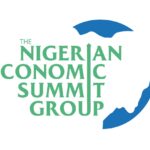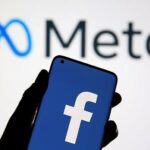Preparatory to the 1979 takeoff of the 2nd Republic, Nigeria’s Federal Military Government (FMG) established a Rotimi Williams-led 49 member Constitution Drafting Committee (CDC) to craft a constitution for the country, which brought the debate on the choice of an economic/political model to a national issue. Two historians from the Ahmadu Bello University (ABU), Zaria and the University of Ife (now Obafemi AwolowoUniversity-OAU), the late Dr Yusufu Bala Usman and Chief Segun Osoba, members of the CDC, disagreed with the Rotimi William’s draft of an economic/political model. In protest against the choice, the duo submitted a minority report with an alternative economic and political model.
The CDC was an elitist platform for contestations of views on the future direction of the nation, which passionately sought to draft an enduring grundnorm for Nigeria. After the rejection of the minority report, the coast was set for the majority draft to be processed by the Constituent Assembly and the Nigerian state into the 1979 Constitution, discarded no sooner than it was proclaimed. In less than half a decade after coming into force, the 1979 Constitution was suspended, with some of its provisions adopted in subsequent constitutions.
Impliedly, the CDC majority thought that they were avant-garde in the search for an economic and political model for the nation. And that the chicanery of ideologically balancing the left and right, East and the West would pacify Nigeria’s restive socialist community, and wet the appetite of the bourgeois groups eager to commandeer the nation’s economy, as well as resonating with the Moscovite and Washington political establishments, through a simultaneous endorsement and rejection of the economic and political philosophy of each.
The struggles for supremacy of the conflated models led to the private sector overpowering the public sector, neutralising their mixture, revealing an unmistakable sameness between the proclaimed choice: mixed economy and the preferred but hidden choice: public sector dependent capitalism.
- Lessons learning features in the Ghanian elections 2024
- Local militias and peace in Taraba communities
The Rotimi Williams group was hopeful that dependent capitalism would propel the nation on a trajectory of sustainable economic growth, with downward trickling effects for poverty reduction among the vulnerable classes. However, the minority group entertained fears about the accepted model’s capacity to sustain growth and reduce poverty, informing its stance that it was an inappropriate model for Nigeria.
Capitalism has grown from its West European and American cocoon to a global system which effectively integrated the international economy, dividing the world into dominant and peripheral economies, with the latter plundered by the former. An intricate post colonial exploitative mechanism reproduces Rodney’s underdevelopment at global level, by massive capital transfers from the peripheral to the metropolitan economies. The CDC majority’s model integrated Nigeria’s economy into the global capitalist system. The integration has been facilitated by the import dependent nature of the economy inducing massive depletion of foreign reserves, reinforced by economic crises, generating persistent balance of payment crises, which pushed Nigeria into the arms of the IMF/WB, from which it was freed not long ago by the Obasanjo administration. But no sooner was it relieved from massive external debts, than it was pushed back into heavy external debts by the All Progressives Congress (APC) led administrations.
Nigerian mixed economists/capitalists reap where they have not sown, adept at the takeover of public enterprises through unending privatisation exercises.The almost effortless acquisitions of the public sector incapacitated them to fully develop the productive forces to realise the optimum industrial potentials of the economy.
The nation’s high debt profile is responsible for channeling a large chunk of foreign exchange earnings into debt servicing and repayments, leaving no economic breathing space for governments, pushing them into a vicious cycle of indebtedness, and entanglement with the IMF/WB, denying Nigerians dividends of democracy, exposing them to compounded existential hardships.
In the 4th Republic, the Nigerian state has been unusually disconnected from Nigerians, offloading its basic responsibilities to them, breeding insurgency, unprecedented theft of national resources through protected banditry. The integration of Nigeria’s economy into the global capitalist system underscores the neoliberal withdrawal of subsidies, higher electricity tariffs, contemplated increases in taxes, etc, and possibly the eventual privatisation of the state, with external stakeholders (IMF/WB) and local ones as major and minor shareholders.
The peoples commonwealth has been unusually plundered, alienating vulnerable groups from the state, inducing disintegrative fissures, and incremental state failure in Nigeria. A way out of the peculiar national mess is to adopt the minority group’s alternative model; disengage from the global capitalist system and integrate the economy with the BRICS, a group of progressive nations fed up with the American dominated global capitalist system.
The state of the nation underscores the fact that the hopes of the CDC majority group haven’t been met by the mixed economic or capitalist models in Nigeria; whilst the fears of the minority group have been confirmed by the rejection of their alternative economic and political model.
Aminu Habibu Jahun, a commentator on public affairs wrote from Dutse, the Jigawa State capital and can be reached via emai@ [email protected]
 Join Daily Trust WhatsApp Community For Quick Access To News and Happenings Around You.
Join Daily Trust WhatsApp Community For Quick Access To News and Happenings Around You.


